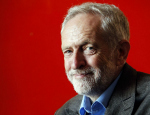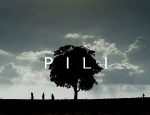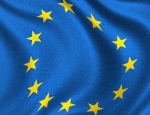Expert comment

30 January 2017
Dr Guy Westwell, Senior Lecturer in Film Studies at QMUL reviews Hacksaw Ridge for The Conversation.

25 January 2017
Davor Jancic, Lecturer at QMUL's School of Law writes about yesterday's Supreme Court judgement on Article 50.

20 January 2017
Andrew Hines, PhD candidate at QMUL's School of Languages, Linguistics and Film writes for The Conversation about President Trump's inauguration speech.

19 January 2017
Dr Martin Archer from the School of Physics and Astronomy writes about his work taking the latest research into schools and how his findings can help science researchers and teachers interested in doing something similar.

9 January 2017
In this blog post, Jo Brown, Head of Quality in Teaching and Learning at QMUL’s School of Medicine and Dentistry, talks about her recent experience of teaching Romanian oncologists about successful communication between doctor and patient.

22 December 2016
Dr Reuben Loffman from QMUL's School of History considers the future of Congolese politics and the country's President Joseph Kabila.

25 November 2016
In this article Professor Dr Rafael Leal-Arcas considers what Brexit means for UK trade policy. Professor Leal-Arcas is Jean Monnet Professor in EU International Economic Law at QMUL's Centre for Commercial Law Studies.

3 November 2016
Energy security is a burning issue in a world where 1.4 billion people still have no access to electricity. A new book from QMUL's Professor Rafael Leal-Arcas focuses on finding solutions for energy security through the international trading system. Focusing mainly on the European Union as a case study, this holistic and comprehensive analysis of the existing legal and geopolitical instruments strives to identify the shortcomings of the international and EU energy trade governance systems, concluding with the notion of a European Energy Union and what the EU is politically prepared to accept as part of its unified energy security.
17 October 2016
Dr Lee Jones from QMUL's School of Politics and International Relations writes about the death of Thailand's King Bhumibol Adulyadej. Dr Jones says that the King was a much more complex figure than is suggested by recent obituaries.

11 October 2016
Professor Tim Bale from QMUL's School of Politics and Public Relations writes that its not the first time the Tories and big business have been on less than friendly terms.

27 September 2016
Dr Monica Poletti from QMUL's School of Politics and International Relations explores how different views among older and newer Labour party members shaped the outcome of the leadership contest, using survey data from the Party Members Project.

27 September 2016
Dr Erik Mathisen from QMUL's School of History reviews Matthew McConaughey’s new movie Free State of Jones.

1 September 2016
Professor Kiera Vaclavik, from QMUL's School of Languages, Literature and Film, writes about children, stories, and a scare at bedtime.

3 August 2016
Andrew Hines, a PhD candidate at QMUL's School of Languages, Linguistics, and Film, write about Republican nominee Donald Trump's unorthodox and rule-breaking rhetorical style.

29 July 2016
Dr Sophie Harman from QMUL's School of Politics and International Relations writes about her forthcoming film about HIV, which based on the testimony of 85 local women from the Pwani region of Tanzania.

26 July 2016
In her second blog post from Cambodia with RESULTS UK, QMUL's Dr Jess Potter reports from a multidrug-resistant tuberculosis ward in Phnom Penh and highlights the impossible choices that have to be made with limited funding.

21 July 2016
In this blog post, QMUL's Dr Jess Potter reflects on the scale of Cambodia's hidden TB epidemic and what she is experiencing on her trip through rural communities with RESULTS UK.

20 July 2016
In this post Professor Tim Bale takes a closer look at Labour's "£3 supporters". The article is based on his research with colleagues in the Party Members Project and is co-authored by Professor Paul Webb, University of Sussex, and Dr Monica Poletti, QMUL.

13 July 2016
In this post Professor Tim Bale examines what Tory party members want and expect from Prime Minister Theresa May. The article is based on his research with colleagues in the Party Members Project and is co-authored by Professor Paul Webb, University of Sussex, and Dr Monica Poletti, QMUL.

12 July 2016
While the Chilcot Report does not accuse Tony Blair of war guilt for Iraq, his responsibility for the war and its consequences is in question. In this blog post, Dr James Ellison, of QMUL's School of History and the Mile End Institute, reflects on the historical significance of the Iraq Inquiry and whether Blair should be blamed.

8 July 2016
Brexit may reshape the UK's political geography - locally as well as internationally, according to Professor Jane Wills. "When people are encouraged to take back control, they need access to the political institutions that might allow this to happen."

28 June 2016
Professor Tim Bale examines the results of a YouGov survey of 2026 members and supporters who joined the Labour Party after May 2015.
27 June 2016
As David Cameron's period at the summit of UK politics draws to a dramatic close, historian Dr Robert Saunders profiles the elusive prime minister.

24 June 2016
Dr Paul Copeland, Senior Lecturer in Public Policy at QMUL's School of Politics and International Relations, considers the next steps for post-Brexit Britain.

23 June 2016
English sentiment has been important to the tenor and character of the Vote Leave campaign, but Michael Kenny writes there are reasons to be sceptical that English nationalism has had a clear, causal role in the EU Referendum. He asks whether the picture of the ‘two Englands’ – one progressive and cosmopolitan, the other populist and nationalist – draws too sharp a distinction between them, and in doing so underplays the extent to which fears about cultural identity, inequality and immigration are shared in very different kinds of places and communities.

22 June 2016
Suzy Solley, PhD Candidate at QMUL's School of Geography, writes about the discrimination faced by widows in many parts of the world.

22 June 2016
The 'Cracking Law' podcast is produced by expert researchers from QMUL's School of Law. The first episode focuses on European Union law, and episode two looks at Brexit.

17 June 2016
Professor Philip Cowley writes about the role of MPs in their constituencies. He says: "It is a difficult, time-consuming, at times frustrating and at other times rewarding, part of the job. It should not also be dangerous."

4 May 2016
Eric Henize, Professor of Law and Humanities, considers the crisis facing the British Labour Party, and asks - what is antisemitism?

28 April 2016
Chris Millard, Wellcome Trust Medical Humanities Research Fellow, reviews the film Demolition (2015) in the context of his work as a historian of the emotions.